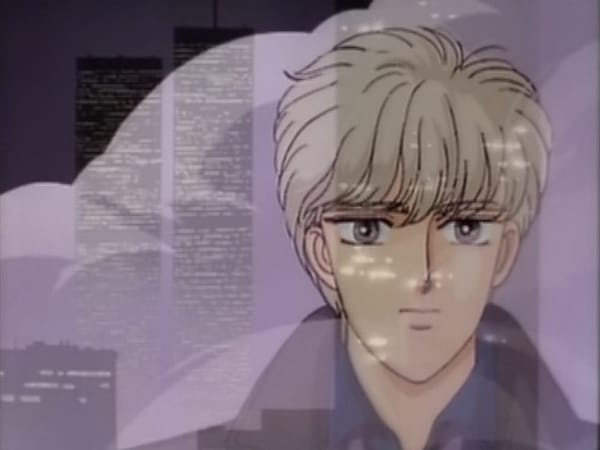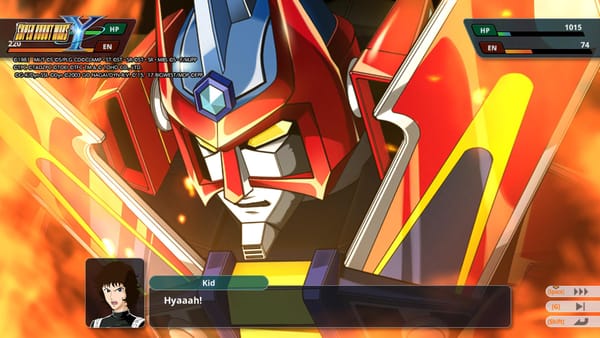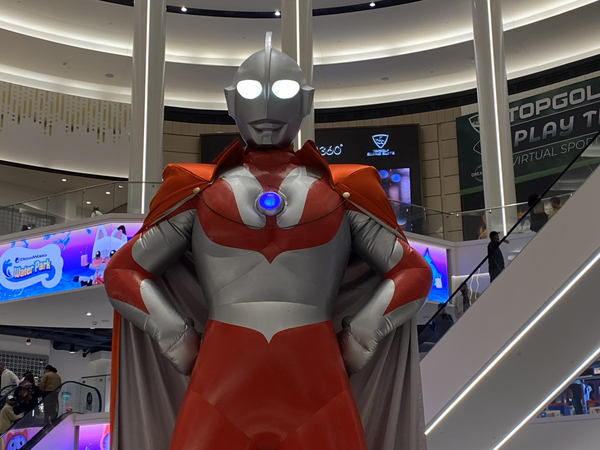How to properly use the AI Analysis feature to correct your mahjong style in Riichi City (or wherever else you play)

If you want to get better at riichi mahjong, studying and evaluating one’s own games is a must. A major part of sharpening your technique is looking at your own decisions honestly, asking yourself “why did I do that?”, and using that information to correct bad habits.
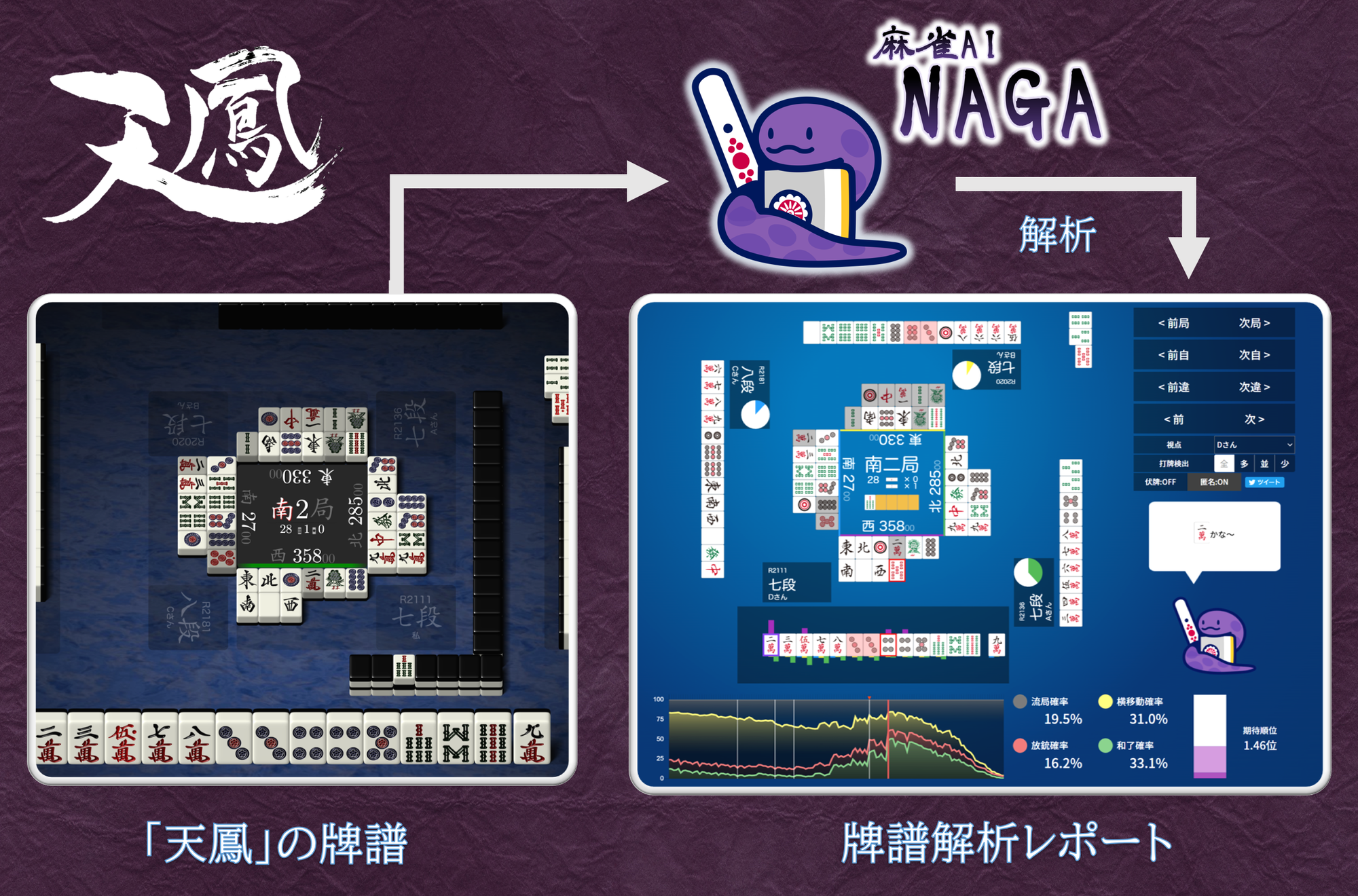
Lately, a lot of riichi players have been studying with the help of AI models trained by processing many, many games: basically, virtual experts. The Naga model was the first on the market, but without a Nicovideo account, some basic knowledge of Japanese and a way to pay it, you’ll have a tough time using it. The model most English speakers use is Mortal, which is open source. Either app will read your Tenhou, Mahjong Soul, or Riichi City (Mortal only) logs and analyze them turn-by-turn, telling you where the model would have made a different decision given the information at hand.
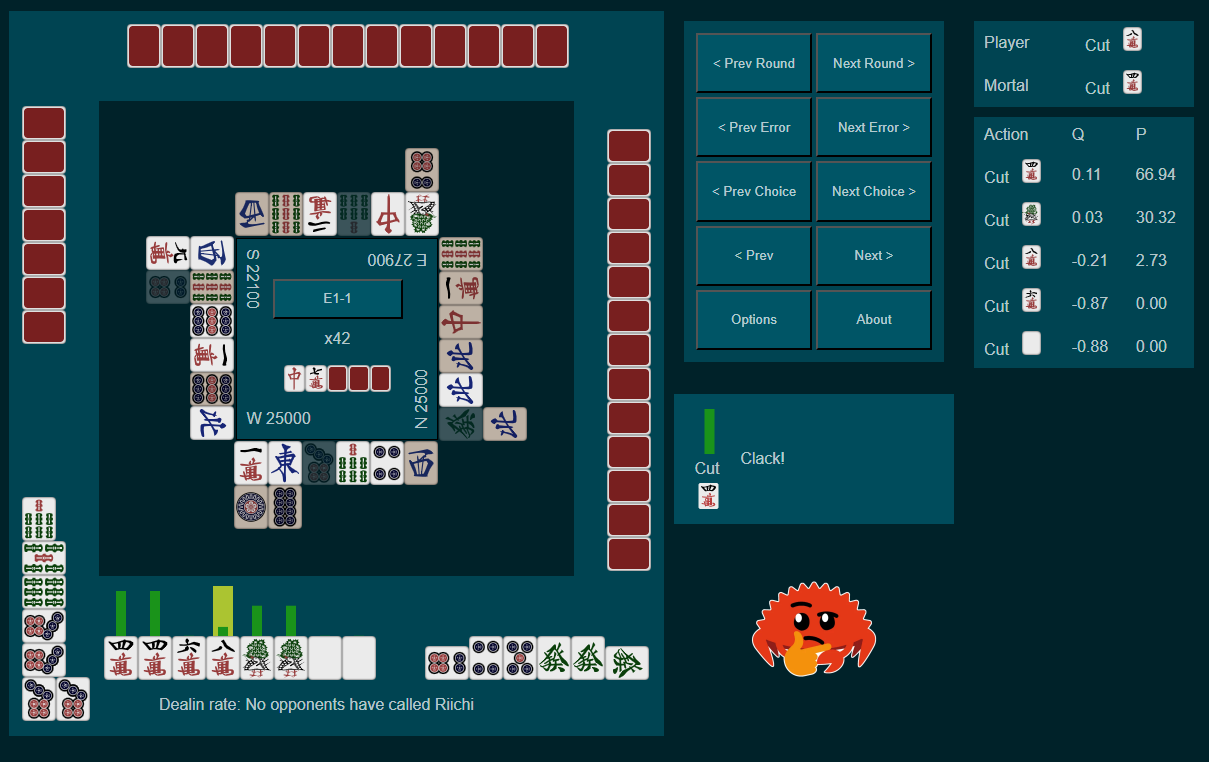
This makes for a strong study partner, as the AI highlights moves that might have been mistakes and gives strong alternative suggestions. It’s ultimately up to you to decide whether or not you agree with these suggestions, but do give it some consideration, as this is in a sense equivalent to having a much higher-level player look over your game.
Riichi City has recently implemented Mortal directly into the game, so you can run 4p matches you’ve played directly into the AI and see what it has to say about your play without even leaving the app. I was always able to run Mortal on my RC game logs, but I use it a lot more now that I have such easy access to it. (It costs a microscopic amount of in-game vouchers to scan a log, or if you use the RC “monthly mascot” you can scan ten a day, which makes the cost negligible.)
But I think the UI in Riichi City’s AI analysis mode can be a little misleading, and that led me to this idea: a post specifically about how best to make use of the AI mode to help you actually take steps to improve your game rather than blindly following suggestions.
The Gamesoft Robo Fun Club is a solo labor of love that depends entirely on paid subscriptions from readers to exist. If you enjoyed this piece and you'd like to see more, I'd love to see you become a regular or paid subscriber. Paid subscribers get exclusive posts. Thanks for reading the pitch and hope to see you subscribe!
Don’t get hung up on trying to play 100% accurately to the AI
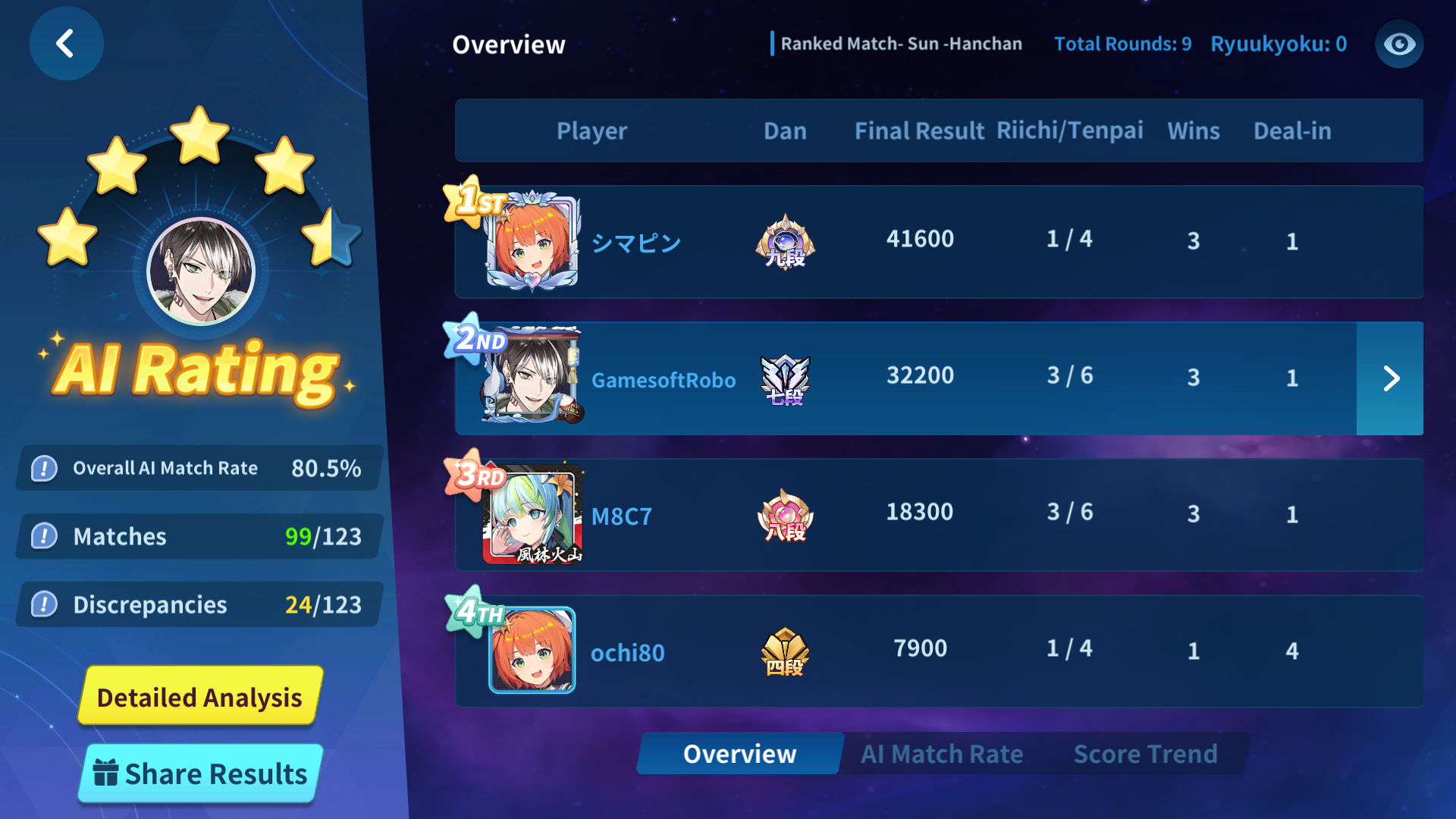
The UI for this mode rates players on a 1-5 star scale based on how accurate they were to the AI, as a quick and dirty measure of the quality of your play. When you make really big technical mistakes your AI rating is low, and when you play by the book your AI rating is high: whether you won the match or not is irrelevant. Mortal is looking for consistently “correct” play based on the information available to the player.
But don’t take the AI rating as a rating of your play. Even the authors of Mortal have said to be wary of this accuracy rating, and not to judge the quality of your play by how accurate it is to Mortal. Mortal plays mahjong better than you do, but it’s just a model; or, you could say, it’s just another player. And like players, even the various AIs (Naga, Suphx, LuckyJ) have different play styles.
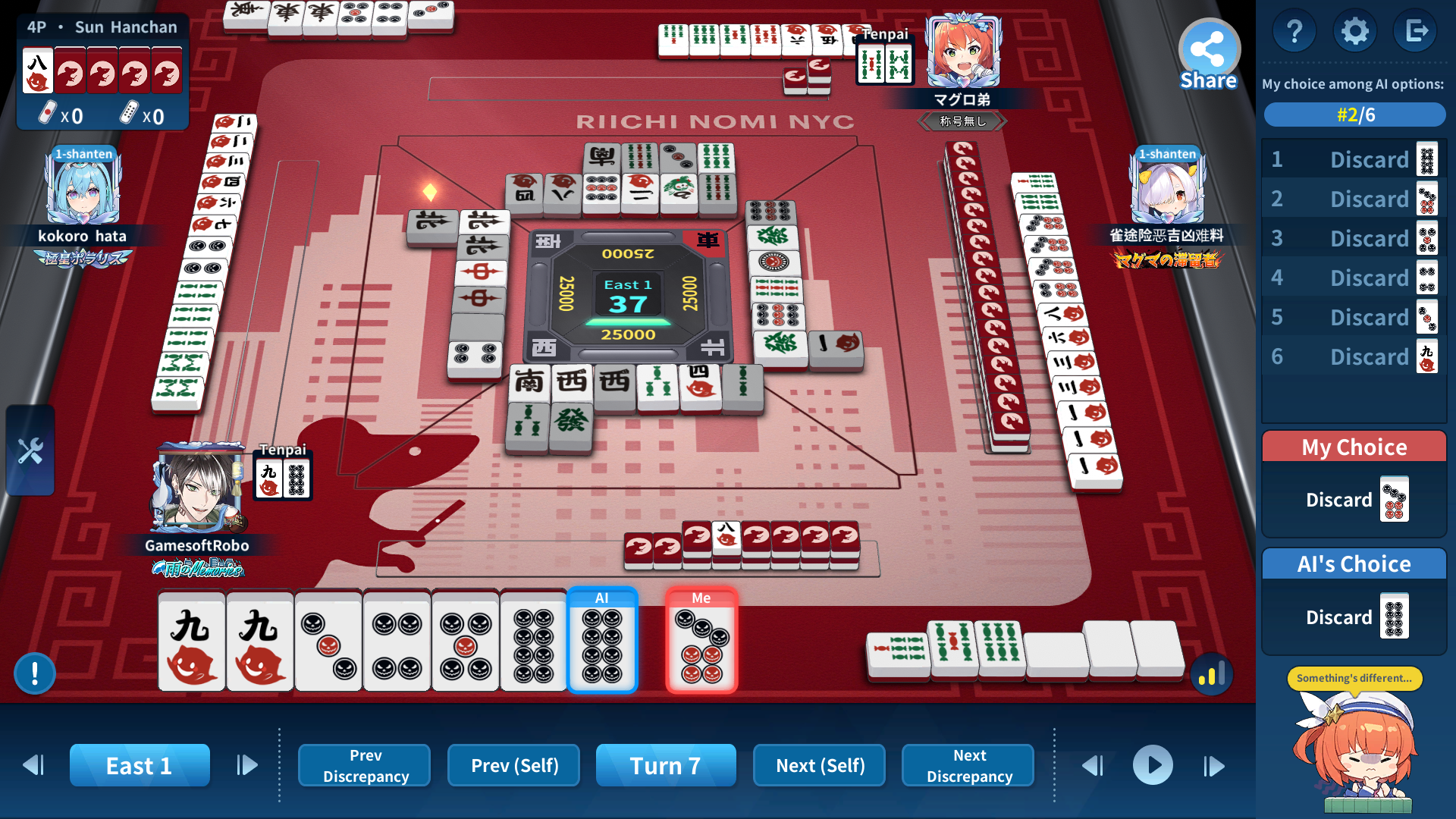
Here is a case from a recent game where I actually wouldn’t make the same move that the AI made. With a tenpai hand and a choice between waiting on 69p or 8p/9m (dora), I chose the latter wait. In a vacuum the 69p wait is clearly better, but in this situation three 9ps are already out. There aren’t a lot of pin tiles on the table period, and 6p by itself is not a good wait.
I suspect that the AI places a lot of value on 9p here because though there is only that one 9p, it’s very likely our opponents don’t need and will discard it. On the other hand, the shanpon wait on 8p/9m waits for some edge tiles that are harder for our opponents to use, and if I get 9m, the dora, it’s about twice the points. I also aim for the dora here because I find Riichi City players much more likely to discard dangerous tiles. Mortal considers the 69p wait to be the most efficient overall, but room still exists for debate.
Someone foolishly dealt the 9m dora into me for a mangan, but consider that the result is irrelevant compared to the thought process behind it! Have a reason for the moves you make; “Because I thought it would be funny” does not count as a reason!
Rather than aiming pointlessly to imitate an AI perfectly, consider what the AI is aiming for with a certain move when it differs from your own. What could they be aiming for by throwing that middle tile that looks really good, or by keeping a tile that you thought was useless? What did it see on the table that caused it to fold a perfectly good hand? Ask yourself things like this as you read through your game. The AI can’t tell us why it makes the decisions it does, so the value of reading an AI analysis comes from trying to interpret that meaning.
Finally, if a player does actually play 100% accurately to Mortal, that’s a major red flag that indicates they might be cheating. Not all of Mortal’s choices are completely obvious— especially when the difference between certain moves is negligible— and it would be weird at minimum if you matched it exactly. A player who sits on ladder match with a cheat app telling them what Mortal would do (this exists on RC, by the way, and it has really lowered my motivation to play ranked) is no more than a monkey on a typewriter.
Ask others if you don’t understand a choice
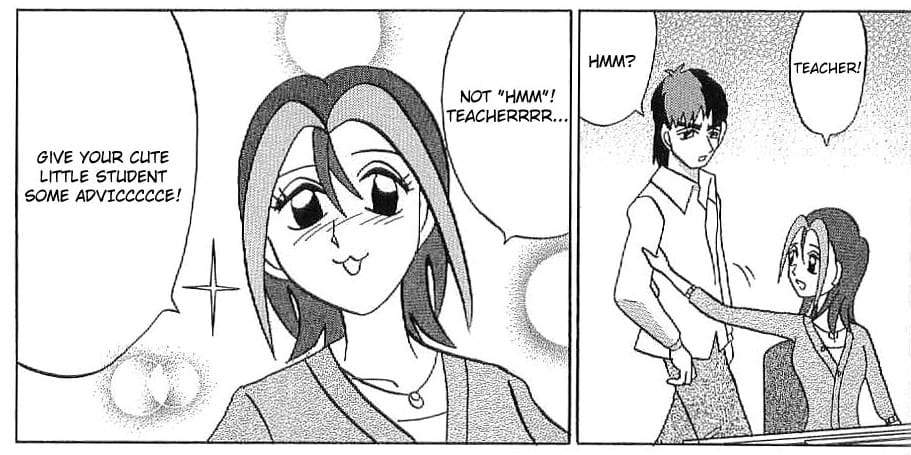
If you’re stumped by a choice the AI made, don’t be afraid to ask other players. It’s possible that a more experienced player will see a possibility that you didn’t. There is a big mahjong Reddit that of late mostly fields these questions about riichi, and the dedicated mahjong discords also have spots for this kind of thing.
Don’t play to hindsight
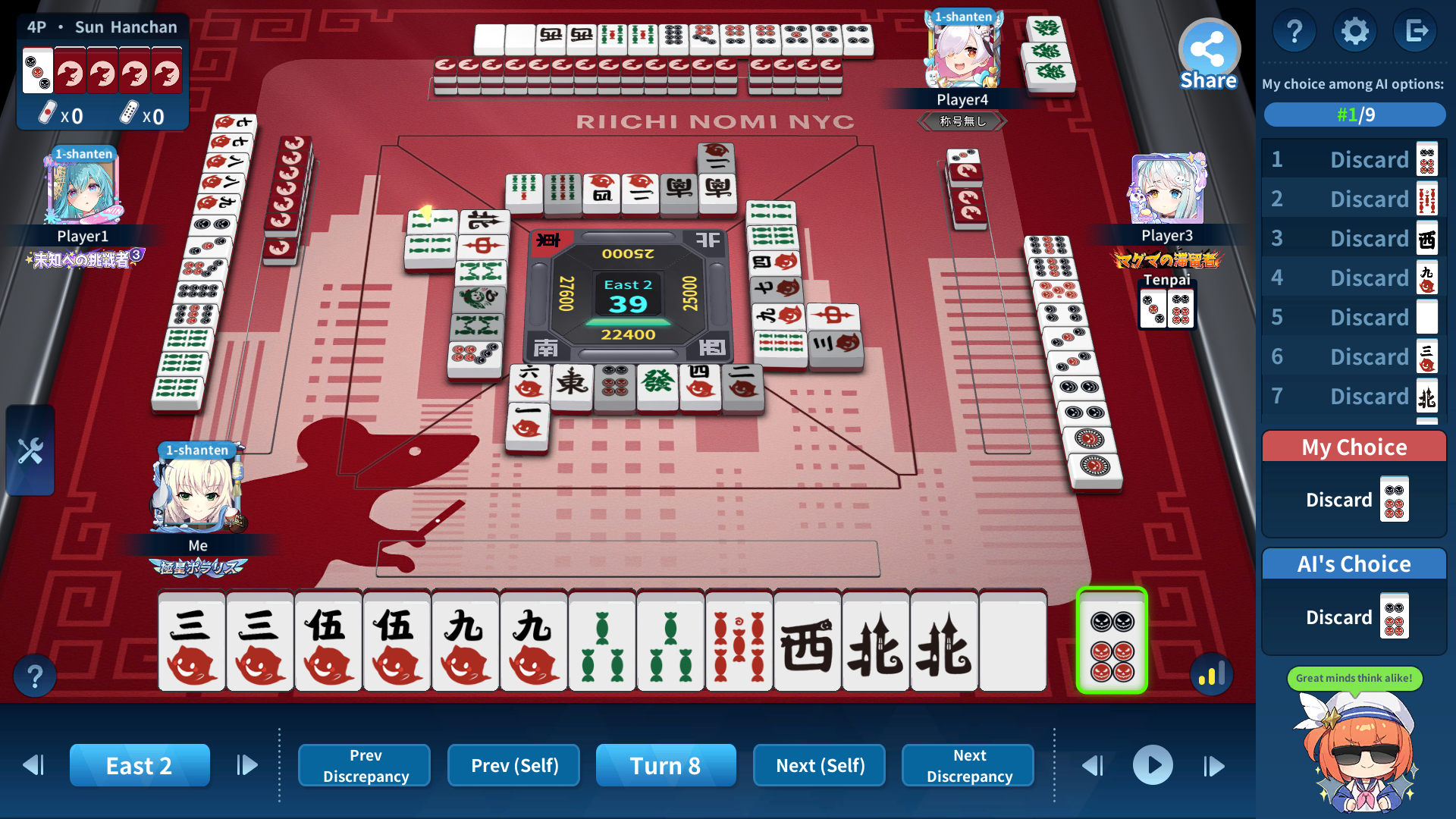
Recently I got this hand, where Mortal and I both agreed that the correct move was to deal this 5p in to a painful loss. This brings up the question: why would an AI bent on perfection tell me to make a losing move?
Something very important to keep in mind about decisions in mahjong is that we are not trying to predict the future or read the opponent’s mind, because regardless of what Saki tells you, these things are not real. We are trying to make the smartest move we can, given the tiles we hold, the game knowledge we've built up, and the situation we can see at the table.
Putting AI aside entirely, beginner to intermediate players often think of the other possibilities after they don’t win their hand.
“If only I hadn’t discarded that 1m, two more of that tile would have come in, and I would have built a winning hand!”
“My winning tile was just 2 draws away!”
“Let me check the uradora. Oh no, if I won this riichi I would have been first place!”
So allow me to be as harsh as possible on this, for your own good. “Would have” does not matter. It doesn’t even exist. There is no universe in which the other thing happened. Concentrate on the choices you make, not the results. That’s what you can control.
Use your own mistakes as a tool to improve your play and win more!
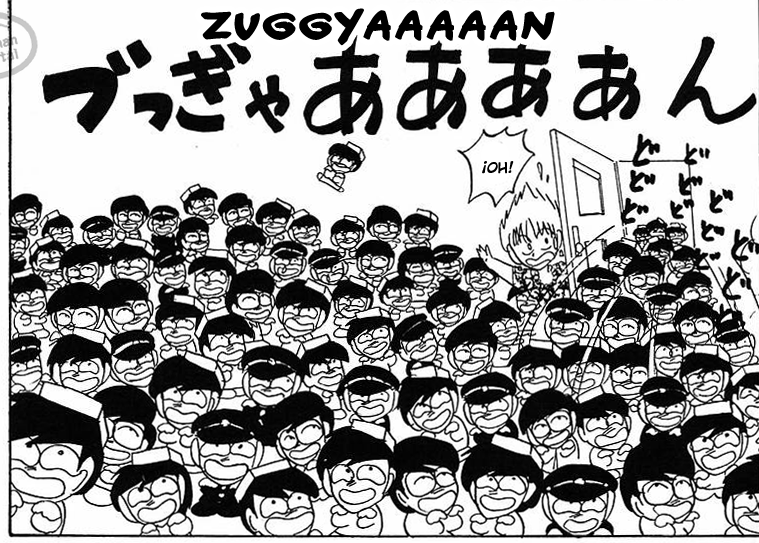
Reviewing matches is just one part of your mahjong study, alongside actually playing matches and studying theory, but it carries a lot of weight. You can play ranked matches for years without a moment of reflection, and thus never see or learn to fix the most elementary flaws in your game. You can read strategy and theory books front to back and learn the optimal moves for any situation, but without frequent real-match practice, you'll never be able to carry all that theory into your actual play.
But when you read your own games, you learn to correct yourself. With an experienced player looking over your shoulder, it's all the better. But there aren't very many experienced riichi players to go around in the English-speaking world... so don't overlook AI! (At least, not this kind.)

